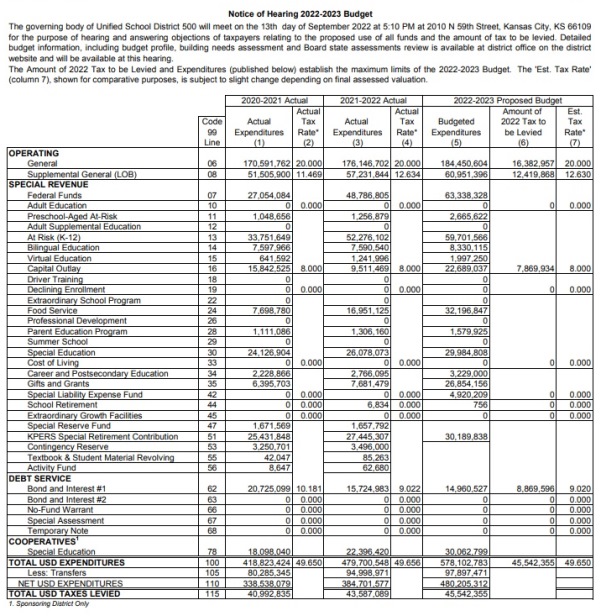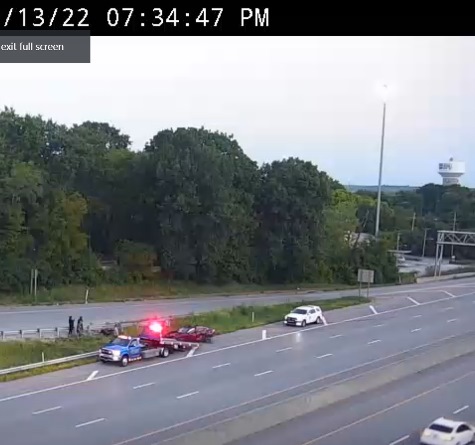The Kansas City, Kansas, Board of Education on Tuesday night approved a budget with a nearly flat mill levy of 49.650 mills, down slightly from 49.656 mills.
According to the budget document, total Kansas City, Kansas, Public Schools expenditures for the 2022-2023 year are $578.1 million. The school district has transfers of $97.89 million scheduled, for net school district expenditures of $480,205,312, according to the budget document.
The total school district taxes levied have risen from $40.9 million in 2020-2021 to $43.58 million in 2021-2022 and $45.54 million in 2022-2023, according to the budget document.
Valuations have increased in the county during the past year, meaning that a flat mill levy could result in a slight tax increase for those whose valuations increased.
The budget was approved on a 4-2 vote after public hearings were held. Voting no were Wanda Brownlee Paige and Dr. Valdenia Winn. Voting yes were Yolanda Clark, Maxine Drew, Janey Humphries and Randy Lopez.
No one spoke at the public hearings.
Dr. Winn said the majority of the board had not reviewed the department budgets closely, but merely rubber-stamped it. She said she had tried to look at cost savings to reduce the total amount and tax burden or finding cost savings to redirect to students’ education.
“I vote no because the board does not comply with state law by requiring the administration to spend certain funds on state-approved best practices in order to address students’ educational shortcomings. I have mentioned this in past as well as present administrations. I stand and demand accountability for the community and the taxpayer. It appears the board refuses to take a stand and demand full accountability from the administration past and present.”
Randy Lopez, board president, said the board had full access to all the budget information, and that full information was made available to the board at several meetings, with the board having the opportunity to question the staff.
The board asked questions and they had several conversations, he said. The administration offered recommendations and responses to the questions asked, Lopez said. They reviewed department budgets and the full budget, he said.
Dr. Winn said she did not say the board did not have access, she said they did not fully review it.
To see more details from the Sept. 13 meeting, visit https://www.youtube.com/watch?v=uwx-sPYRdoE.


